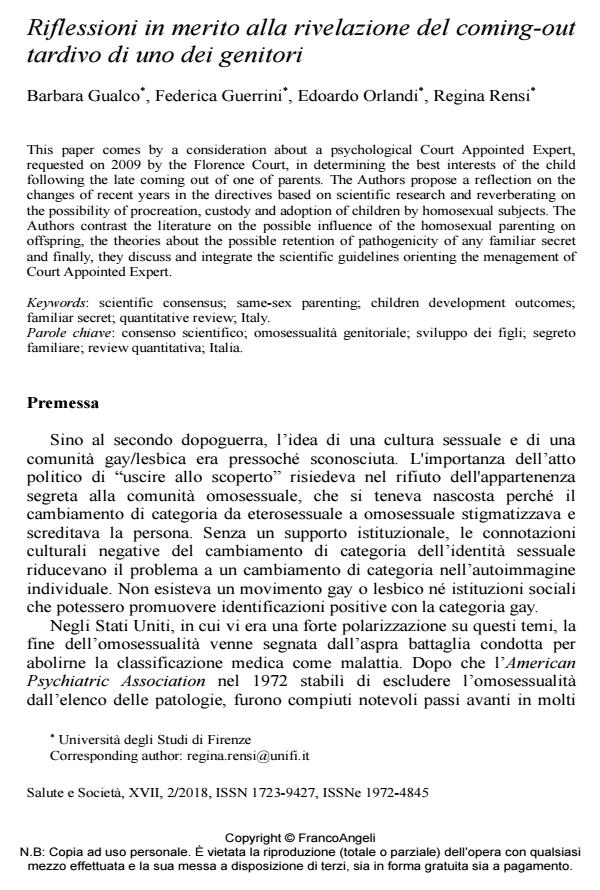Riflessioni in merito alla rivelazione del coming-out tardivo di uno dei genitori
Journal title SALUTE E SOCIETÀ
Author/s Barbara Gualco, Federica Guerrini, Edoardo Orlandi, Regina Rensi
Publishing Year 2018 Issue 2018/2
Language Italian Pages 15 P. 136-150 File size 79 KB
DOI 10.3280/SES2018-002010
DOI is like a bar code for intellectual property: to have more infomation
click here
Below, you can see the article first page
If you want to buy this article in PDF format, you can do it, following the instructions to buy download credits

FrancoAngeli is member of Publishers International Linking Association, Inc (PILA), a not-for-profit association which run the CrossRef service enabling links to and from online scholarly content.
This paper comes by a consideration about a psychological Court Appointed Expert, requested on 2009 by the Florence Court, in determining the best interests of the child following the late coming out of one of parents. The Authors propose a reflection on the changes of recent years in the directives based on scientific research and reverberating on the possibility of procreation, custody and adoption of children by homosexual subjects. The Authors contrast the literature on the possible influence of the homosexual parenting on offspring, the theories about the possible retention of pathogenicity of any familiar secret and finally, they discuss and integrate the scientific guidelines orienting the menagement of Court Appointed Expert.
Keywords: Scientific consensus; same-sex parenting; children development outcomes; familiar secret; quantitative review; Italy.
Barbara Gualco, Federica Guerrini, Edoardo Orlandi, Regina Rensi, Riflessioni in merito alla rivelazione del coming-out tardivo di uno dei genitori in "SALUTE E SOCIETÀ" 2/2018, pp 136-150, DOI: 10.3280/SES2018-002010